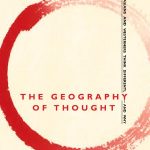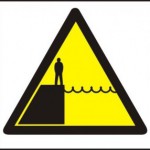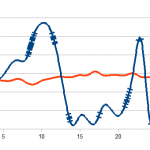Recent articles about how to learn Mandarin Page 43
-
Role-playing to learn more Chinese and avoid frustration
Focusing on meaning rather than form is usually a good idea. It allows you to communicate as opposed to just do drills, which is only useful in limited doses. However, caring too much about what you want to say rather than how you do it will sometimes make you unable to say much at all. In these cases, role play! You don’t need to answer questions truthfully in class. Exploring questions from different perspectives will not only help you learn more, it’s more fun as well!
Read → -
Review: The Geography of Thought: How East Asians and Westerners Think Differently… And Why
People often ask me about cultural differences between East Asia and West and if it’s true that people in different cultures really are all that different. I usually answer something along the lines of that the differences between individuals are bigger than those between cultures. After reading the book recommended in this article, though, I can say a lot more. Reading Richard Nisbett’s “The Geography of Thought” has helped me connect the dots and make sense of some of the differences between East Asia and the West. It’s an enjoyable as well as thought-provoking read.
Read → -
Learning to read aloud in Chinese
Reading aloud in Chinese is hard, but it’s not impossible. It requires a lot of different skills, but it also seems like reading aloud is a skill in itself that needs to be practised specifically if we want to improve our reading ability. In this article, I discuss an experiment I did to see if I could increase my own ability to read aloud in Chinese.
Read → -
Improving your spoken and written Chinese by focusing on the process
Focusing on the process rather than the result has obvious benefits when trying to learn a foreign language. Does it really matter what number your teacher puts on the final version of your essay? No, what matters is what you learnt and what you will be able to improve until next time. Process writing is common enough, but this article extends the concept to speaking as well, which is a much neglected technique in language learning.
Read → -
Asking the experts: How to bridge the gap to real Chinese
Many students of Chinese think that it’s hard to bridge the gap from textbook Chinese to the Chinese used by native speakers in the real world. This article contains useful insights and hands-on advice from more than 20 language learners and teachers. The overall message is encouraging: the gap can certainly be bridged, you just need the right attitude and the right method!
Read → -
How to improve your Chinese writing ability through focused reading
Everybody knows that if we want to improve our writing ability, we need to read more. But what should we read and how? With enough exposure, we can probably learn anything, but it’s much more efficient if we read with focus. If that focus coincides with the current weaknesses in our writing ability, supplemented with some targeted practice, we can improve our writing more quickly!
Read → -
Drills and exercises aren’t only for beginners
It’s commonplace to see workbooks used a lot in beginner courses, but the more advanced the students become, the less they are used. This is mostly for the better, but in this article, I argue that advanced students actually need more drilling than they (we) think. Being able to say or write what we want in one way isn’t enough, we need diversity and a bigger active vocabulary. Drilling is the only time-efficient way of achieving that.
Read → -
Preparing for rainy days and dealing with slumps
We all experience slumps in our learning, but there are many things we can do to reduce the negative effects of these slumps. The solution is three-fold: Preparing for the slump before it hits you, finding learning activities that don’t feel like work and paying attention to what you feel capable of at the moment. You will still experience slumps, but hopefully they will be less severe!
Read → -
Your slumps affect your language learning more than your flows
There are people who go on binges and study like maniacs for short periods of time, but then run out of steam and have slump lasting considerably longer. The problem with this kind of studying is that it really affects your average output. The best is to have a steady, regular performance that gives you the mileage you need without burning yourself out completely. This article examines this problem in greater detail and gives some suggestions for how to improve your slumps.
Read → -
About fossilisation and improving your Chinese pronunciation
It’s a fact that most foreign adults don’t acquire native like pronunciation in Chinese, but what’s the reason? In most debates at this point, someone will throw in the word “fossilisation”, as if that actually explained anything. This article is about why the concept of fossilisation is bunk and how we should think about adult pronunciation instead.
Read →









